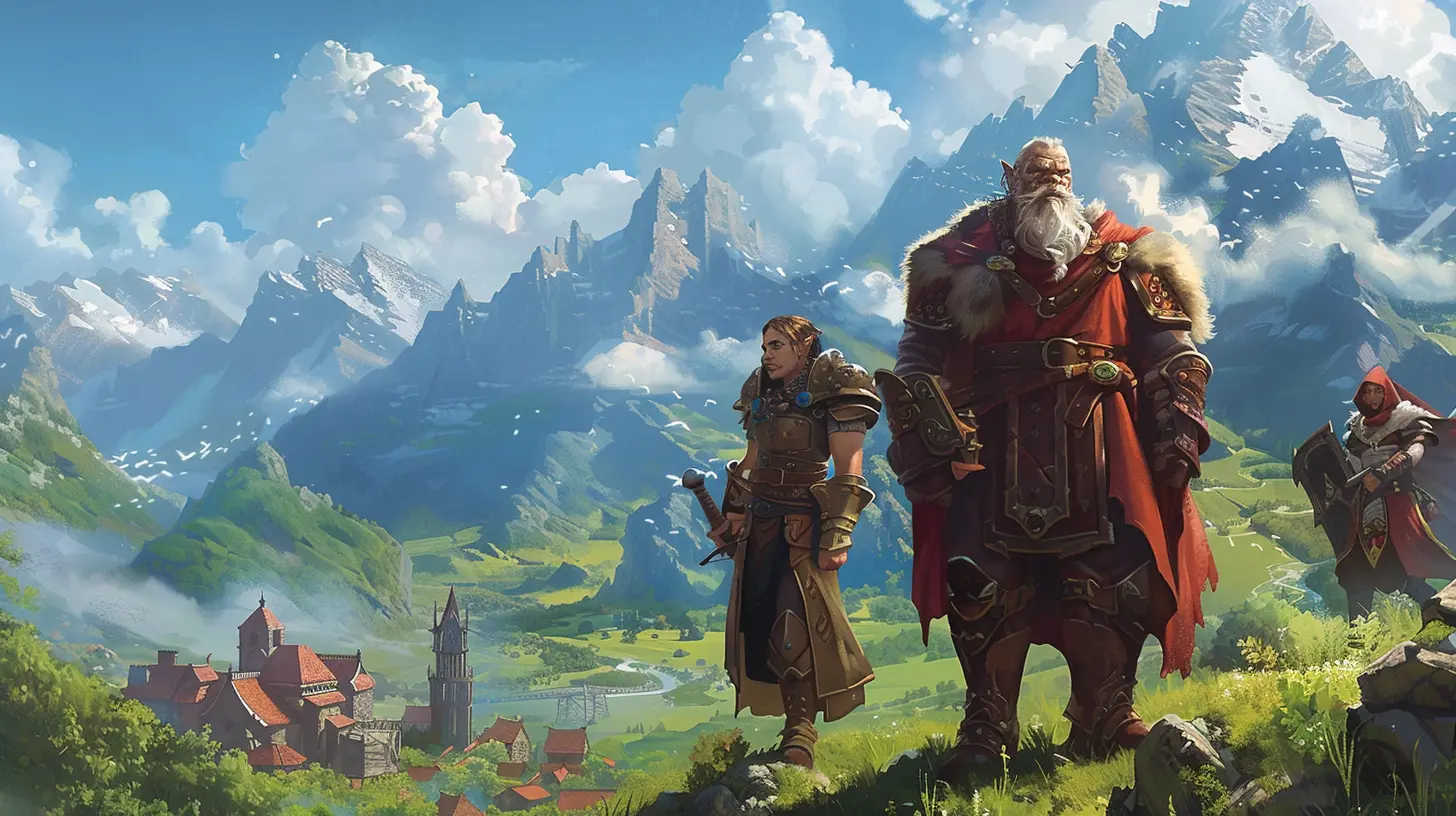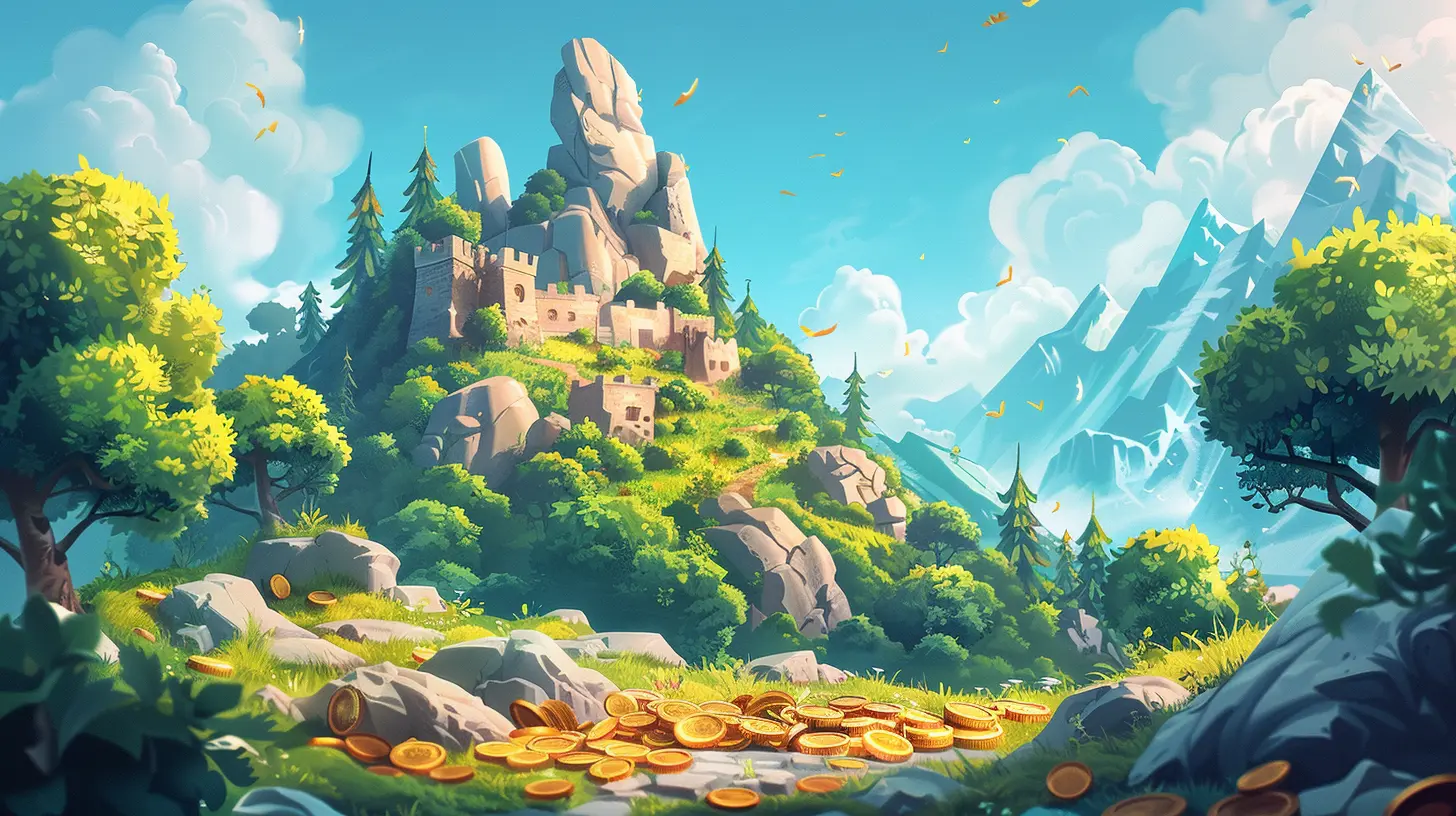Understanding Game Marketing: Key Strategies Before Launching Your Crowdfunding Campaign
6 October 2025
So, you’ve got a killer idea for a game, and you’re ready to take the crowdfunding world by storm? That’s awesome! But here’s the thing—just having a brilliant concept won't magically rake in backers. Before you jump into your crowdfunding campaign, you've got to nail your marketing strategy. Think of it like this: your game is a treasure chest, but marketing is the map that helps people find it. Without it, your masterpiece might as well stay buried.
In this article, we’ll break down the essential strategies you need to understand and implement before diving into your crowdfunding campaign. Trust me, taking these steps will make your campaign not just good, but unforgettable.
Why Marketing Matters in Crowdfunding Games
Crowdfunding is tough. You're not just selling a game; you're selling an idea, a dream, and in some cases, a promise. So why does marketing matter? Simple: visibility and trust. Even if you have the most amazing game concept, it won’t matter if no one knows about it. Think of marketing as your megaphone in a crowded room—you need to shout loud and clear for people to pay attention.Good marketing also builds trust. People back projects they believe in, and strong marketing helps convey that you’re serious, professional, and worth their money.
Pre-Launch Marketing: Your Building Blocks
Before you even think about hitting the "launch" button on Kickstarter or Indiegogo, you need to lay a solid marketing foundation. Here's how:1. Understand Your Audience
You can’t market a game effectively if you don’t know who you're marketing to. Are you targeting hardcore gamers, casual players, or a niche community? Take time to research their preferences, pain points, and where they hang out online. This isn’t just "nice-to-do" homework—it’s your secret weapon.
Ask yourself:
- What kind of games do they love?
- What platforms do they hang out on (Discord, Reddit, Twitter)?
- What tone or style resonates with them?
Think of it this way: marketing to the wrong crowd is like trying to sell snow shovels in the desert—completely pointless.
2. Build Your Online Presence Early
Launching a crowdfunding campaign without an established online presence is like shouting into the abyss. You need to exist online before you ask people for their money.Start building your presence at least 3-6 months before the campaign. Here's what you need:
- Social Media: Set up accounts on platforms where your audience is most active. Instagram for visuals, Twitter for quick updates, Reddit for in-depth discussions—you get the idea.
- Developer Blog or Website: A website acts as your base camp. Post updates, behind-the-scenes content, or blogs about your game. Make it legit because people WILL Google you.
Pro tip: Use an email newsletter to start collecting potential backers. It might feel old-school, but it works like magic.
3. Create Eye-Catching Visual Content
Nobody’s going to spend time reading huge walls of text about your game. Let’s be real, we’re all scrolling zombies these days. So, invest in high-quality visuals—concept art, character designs, gameplay snippets, and teaser videos. These act as the shiny bait to hook your audience.A great teaser can spark curiosity faster than words ever will. Think of it as the movie trailer for your game.
The Hype Train: Building Buzz Before Launch
Once your foundation is set, it’s time to build anticipation. You want people counting down the days until your campaign goes live. Here's how:1. Start a Pre-Launch Page
Most crowdfunding platforms, like Kickstarter, let you create a pre-launch page where people can "follow" your project. This builds a list of interested people who are likely to back the moment you go live. It’s like getting RSVPs for a party—it helps you gauge interest.2. Leverage Social Proof
Humans are herd animals, right? We look to others before we make decisions. Use testimonials, quotes from early testers, or sneak peeks from influencers to prove your game is worth backing. If respected folks in your niche are hyped, others will follow suit.3. Collaborate with Influencers
Speaking of influencers, they can be a game-changer (pun intended). You don’t need to snag a mega-star Twitch streamer; even mid-tier or micro-influencers can help spread the word. These are the people your audience already trusts.Pitch your game to them in a way that highlights what’s unique. Why should they care? Answer that question before reaching out.
4. Engage with Your Community
Don’t just market AT people—engage WITH them. Hang out on forums like Reddit, post polls and questions on Twitter, and respond to comments. When people feel like they’re part of your journey, they’re more likely to back your project.
Crafting a Killer Crowdfunding Page
Your crowdfunding page is your storefront, your pitch deck, and your sales pitch all rolled into one. Here’s how to make it pop:1. The First 30 Seconds Matter
When someone lands on your page, you have about 30 seconds to grab their attention. Make your headline clear and exciting, and lead with your most visually impressive content (think GIFs or a gameplay trailer).2. Tell a Story
People connect with stories, not sales pitches. Share why you’re making this game, what inspired you, and what makes it unique. Let your excitement and passion shine through.3. Break Down the Budget
Your backers are essentially investors. Show them where their money is going. Use a pie chart or a simple breakdown to make it clear. Transparency builds trust.4. Offer Irresistible Rewards
Your tiers should cater to all kinds of backers—from the casual supporters to the big spenders. Offer exclusive content, early access, physical goodies, or personalized experiences. Make them feel like they’re buying into something special.Post-Launch: Keeping the Momentum
So, you’ve launched your campaign—congrats! But the work isn’t over. In fact, this is where it ramps up.1. Update Regularly
Keep backers in the loop with updates about stretch goals, milestones, and behind-the-scenes content. Silence leads to suspicion—don’t ghost your supporters.2. Reignite Interest Mid-Campaign
The dreaded "mid-campaign slump" is real. To counter this, roll out new rewards, announce partnerships, or host live Q&A sessions. Keep the energy alive.3. Thank Your Backers
Genuine gratitude goes a long way. Give a shoutout to your backers, feature them in your updates, or offer exclusive perks for being early supporters. A happy backer might just tell their friends about your project.Wrapping It Up
Game marketing isn’t just an afterthought—it’s the lifeblood of a successful crowdfunding campaign. Start early, understand your audience, and use every tool in your arsenal to build hype and trust. By the time you launch, your backers won’t just be ready—they’ll be lining up to support you.Remember, crowdfunding isn’t just about funding; it’s about creating a community around your game. Treat your backers like teammates, not just wallets, and you’ll build something truly special.
all images in this post were generated using AI tools
Category:
CrowdfundingAuthor:

Aurora Sharpe
Discussion
rate this article
1 comments
Ruby McGuffin
Great insights on game marketing! I appreciate the emphasis on strategic planning before launching a crowdfunding campaign—it's crucial for ensuring a successful launch. Thank you!
October 9, 2025 at 4:36 PM

Aurora Sharpe
Thank you for your kind words! I'm glad you found the insights valuable. Strategic planning is indeed essential for a successful campaign!


